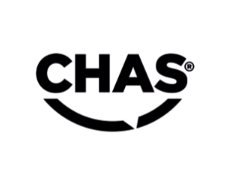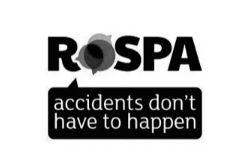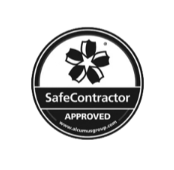phs Group has acquired Citron Hygiene UK find out more here
As well as putting unprecedented pressure on the entire health service, the coronavirus pandemic is having a knock-on effect across healthcare sectors. One impact has been an increase in the amount of pharmaceutical waste produced due to rising demand.
However, this increases the onus on healthcare organisations as handling pharmaceutical waste is not as straightforward as general waste streams. There are strict protocols to follow in order to dispose of pharmaceutical waste correctly, brought about by legal requirements as well as a moral duty to prioritize health and safety. This includes the categorization and disposal of various types of clinical waste, which is a subset of healthcare related waste, encompassing non-infectious materials. Failing to follow the regulations can result in hefty fines and even risk sickness, injury, and infection. Proper handling and disposal of medicinal waste are also crucial to adhere to legislation and protect the environment. But what exactly falls under the remit of pharmaceutical waste and how do you dispose of it correctly?
When it comes to pharmaceuticals disposal, finding yourself on the wrong side of the law could mean some pretty hefty fines.
That’s without even mentioning the consequences that can arise even if you don’t get caught - staff sickness, injuries, infections, and even negative first impressions for customers.
It should go without saying that any company or organisation that makes use of pharmaceuticals need to prioritise their safe disposal.
But what constitutes pharmaceutical waste, and how should you go about doing this?
Let’s take a look:
What is Pharmaceutical Waste?
Pharmaceutical waste is the catch-all term for medications and drugs which are either unused, contaminated, damaged or have expired.
The three primary categories for pharmaceutical waste are:
-
Prescription medication
-
Over-the-counter medicines
-
Research and development (R&D) drugs
The amount of pharmaceutical waste being produced each year is significant. Looking just at prescription medication alone, it’s estimated that £300m of NHS-prescribed medicines are wasted each year. And that’s on top of over-the-counter medicines and R&D drugs. Additionally, pharmaceutical waste must be properly segregated to distinguish between hazardous waste and non-hazardous waste according to regulations.
Proper management of healthcare waste is crucial, requiring accurate classification and auditing of all waste streams produced in pharmacies to ensure compliance with environmental and health standards.
In addition to these three categories, pharmaceutical waste can also refer to:
-
Packaging and medical items that contact pharmaceuticals, including PPE such as used gloves
-
Used glass vials or syringes used to handle and administer medicines
-
Cytostatic and cytotoxic drugs; medicines or active agents which are used to treat cancer, immunosuppressants, anti-virals or which are hormone based
-
Infectious samples or bodily fluids
-
Intravenous fluids
-
Dietary supplements (over 1 litre)
-
Alcohol hand gels that contain siloxanes
How to dispose of pharmaceutical waste correctly
Pharmaceutical waste is produced by doctors, dentists, pharmacists, vets and anyone who prescribes, supplies or handles controlled drugs. As a distinct and legally-regulated waste stream, it must be handled and disposed of separately and subsequently incinerated.
Compliance with hazardous waste regulations is crucial to ensure proper management and disposal of pharmaceutical waste, which is a significant component of healthcare related waste. Pharmacy owners must register with the Environment Agency and follow guidelines to prevent cross-contamination with general waste.
Prior to disposing of these medicinal items, they must be denatured even if they are out of date or unusable. This minimises the risk of theft or abuse of the drugs before they are destroyed. The waste should then be segregated into set-coloured pharmaceutical waste bins which allow them to be clearly identified and disposed of in the right way.
The correct coloured bins for pharmaceutical waste
The most common, relevant bins for pharmaceutical waste disposal are blue, purple and yellow-lidded containers:
-
Blue-lidded bins: Non-hazardous medicines and items contaminated with non-hazardous medicines
-
Purple-lidded bins: Cytotoxic and cyostatic sharps waste
-
Yellow-lidded bins: Sharps which contain medical residue such as contaminated needles or syringes
Hazardous waste producers must ensure proper segregation and disposal of pharmaceutical waste, complying with health regulations and maintaining necessary documentation.
You’ll also find pharmaceutical bins for different purposes such as phs’ liquid waste bins which mitigate against spillages. For clinics, GP surgeries, hospitals, vets and other medical environments, even more specialised containers may be required. For example, bins for the safe disposal of wound dressings or swabs. In response to the coronavirus pandemic, has also launched new PPE waste bins to allow the segregation and subsequent disposal of COVID waste such as used lateral flow tests and swabs as well as gloves, aprons and masks.
What else do I need to do to comply with pharmaceutical waste regulations?
It’s essential that waste bins for pharmaceutical waste are able to be locked in order to prevent spills, theft and reduce the risk of accidental contact with sharps, infectious materials or potentially dangerous drugs.
Outside of the legal and safety reasons for ensuring proper disposal of pharmaceuticals, it’s also important to avoid any potential environmental impact. Incorrect or inadequate disposal of chemicals, medications or infectious materials can have devastating consequences to local plant life, wildlife and water supplies. Yet another reason to adhere to the rules and dispose of pharmaceutical waste in the right way. The Environment Agency plays a crucial role in setting and enforcing these compliance regulations.
Community pharmacies have specific regulatory obligations for the proper disposal of pharmaceutical waste. They must comply with environmental legislation and follow guidelines to ensure public safety and avoid legal repercussions.
While the UK regulations on pharmaceutical waste disposals are strict, they’re there for a good reason. However, remaining compliant isn’t always easy with the day-to-day running of your pharmacy, surgery or medical setting. Therefore, many organisations choose to work with a specialised pharmaceutical waste disposal service like phs Group. As experts in this field, we can help you minimise risk, maximise compliance and maintain the safest, cleanest environment possible while allowing your staff to focus on what matters, patients. It is also essential to maintain a waste transfer note as part of the legal documentation required for managing waste.
Even for private organisations such as medical researchers, a professional service can often be cheaper and more reliable than setting up an internal waste disposal team; eliminating the risk of mistakes and with the assurance you’re doing it correctly and safely.
phs pharmaceutical waste disposal services
Group is the leading supplier of pharmaceutical waste disposal, ready and waiting to help you remain compliant and safe. With specialist teams across the UK, wherever you are, is on your doorstep. Our services encompass comprehensive pharmaceutical waste management, ensuring that all legal obligations and environmental impacts are addressed.
We offer a full pharmaceutical waste disposal service; identifying your needs, supplying the correct waste bins, regular servicing and disposal. We also use an easily auditable process that allows us to demonstrate that everything has been done correctly, essentially taking the issue of pharmaceutical waste disposal compliance off your hands for good. Additionally, we manage unwanted medicines returned by patients, adhering to regulatory requirements and guidelines to ensure safe collection and segregation.
And our staff are friendly, dedicated and experienced meaning the service we provide is reliable and discreet, causing zero interruption. Our visits are also fully compliant with COVID-safe measures.
For support with all your pharmaceutical waste needs, get in touch with today.


































